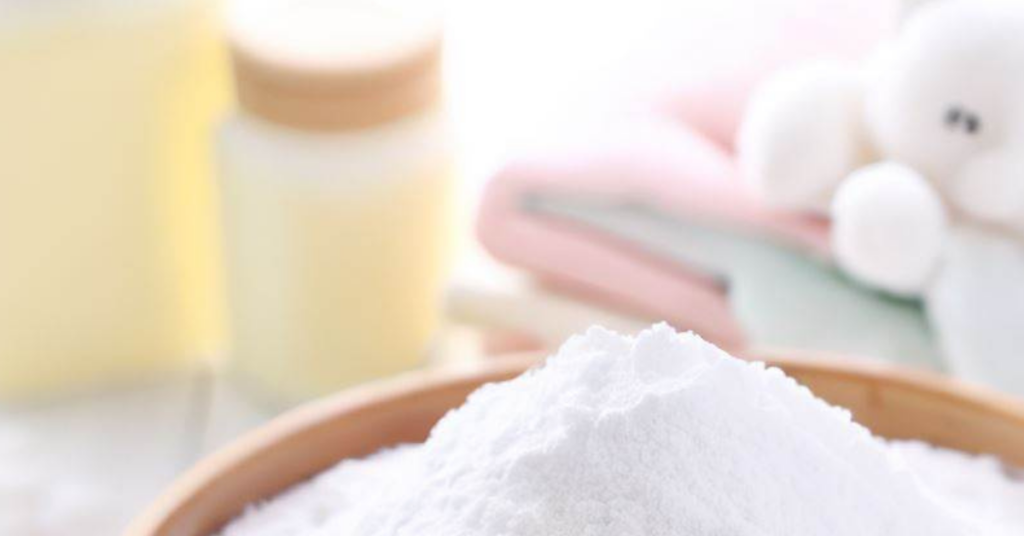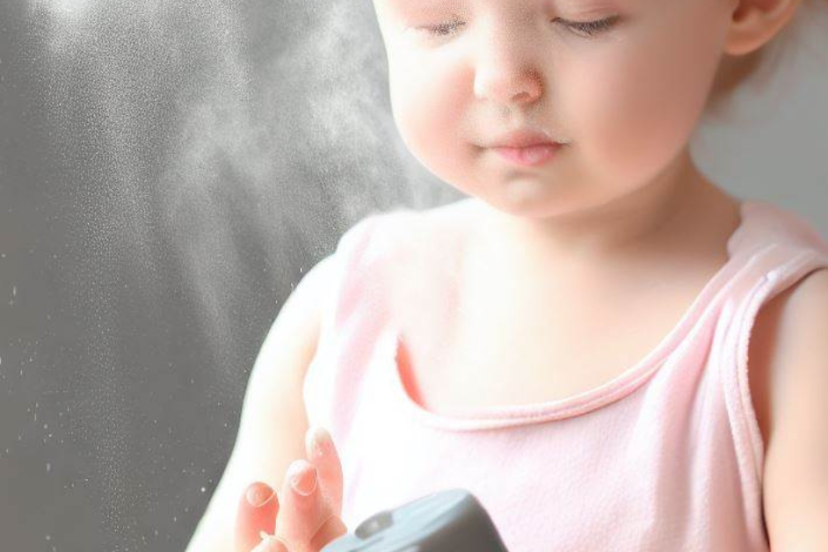Welcome to the world of baby care and grooming today we talk about baby powder as dry shampoo. As parents, we always strive to provide the best for our little ones, ensuring their comfort, safety, and well-being. When it comes to maintaining cleanliness and hygiene, we often encounter various advice and suggestions. One common question that arises is whether baby powder can be used as a dry shampoo. In this article, we will delve into this topic, examining the myth and risks associated with using baby powder as a dry shampoo alternative. Furthermore, we will explore safer and more suitable alternatives for maintaining the cleanliness of our baby’s scalp. So, let’s get started!
Understanding baby powder as dry shampoo
Before we dive into the myth of using baby powder as a dry shampoo, it’s important to understand what dry shampoo actually is. Dry shampoo is a product designed to refresh and cleanse the hair without the need for water. It typically comes in a spray or powder form and is used to absorb excess oil, add volume, and extend the time between traditional hair washes. Dry shampoo is widely popular among adults, especially those with busy schedules or hair types that tend to become oily quickly.
The Myth of Using Baby Powder as Dry Shampoo
There has been a long-standing belief that baby powder can be used as a substitute for dry shampoo. This notion stems from the fact that baby powder is primarily made of talcum powder or cornstarch, which are known for their absorbent properties. Many people assume that since baby powder can absorb moisture on a baby’s skin, it can also absorb oil on the scalp, making it a suitable alternative to dry shampoo.
However, it’s essential to separate fact from fiction. While baby powder may be effective in absorbing moisture on a baby’s skin, it is not formulated or intended for use on the scalp. The texture and composition of baby powder differ significantly from dry shampoos designed for adults. Using baby powder as a dry shampoo can lead to potential risks and concerns that we need to be aware of.
Potential Risks and Concerns of baby powder as dry shampoo
One of the primary concerns with using baby powder as a dry shampoo is the delicate nature of a baby’s skin and scalp. Babies have more sensitive skin compared to adults, and their scalps are still developing. The use of baby powder on the scalp can disrupt the natural balance of oils and moisture, leading to dryness, irritation, and potential skin issues.
Furthermore, baby powder is primarily available in talcum powder form.Talcum powder, also known as baby powder, is a cosmetic product made from talc, a naturally occurring mineral. Talc is composed mainly of magnesium, silicon, and oxygen. Talcum powder has raised safety concerns in recent years due to potential contamination with asbestos fibers, which can have adverse health effects when inhaled.
Although reputable baby powder manufacturers have taken measures to ensure their products are asbestos-free, there is still a level of uncertainty regarding their safety.
Talcum powder, also known as baby powder, is a cosmetic product made from talc, a naturally occurring mineral. Talc is composed mainly of magnesium, silicon, and oxygen.
Inhalation of baby powder can also pose respiratory risks, especially when it is applied in large quantities or in a confined space. The fine particles of baby powder can become airborne and be inhaled by the baby, potentially irritating their respiratory system and causing discomfort.
Considering these risks and concerns, it is strongly advised to avoid using baby powder as a dry shampoo for your baby’s scalp.
Alternatives to Baby Powder

Fortunately, there are safer and more suitable alternatives to baby powder for maintaining the cleanliness of your baby’s scalp. Here are a few options to consider:
Cornstarch:
Cornstarch is a natural alternative that can absorb excess oil on the scalp. It is safe for babies and can be applied sparingly to the scalp using a soft brush or your fingertips.
Arrowroot Powder:
Another natural alternative, arrowroot powder, is gentle on the scalp and provides a similar absorbent effect as cornstarch. It can be applied in the same manner as cornstarch, helping to refresh the scalp without causing irritation.
Dry Shampoos for Babies:
Several brands now offer dry shampoos specifically formulated for babies and young children. These products are designed with their delicate scalps in mind, using gentle ingredients and avoiding potentially harmful substances. Look for baby-specific dry shampoos that are free from harsh chemicals and fragrances.
By choosing these alternatives, you can effectively maintain the cleanliness of your baby’s scalp without exposing them to the potential risks associated with using baby powder.
Choosing the best baby powder as dry shampoo
While discussing scalp care for babies, it’s essential to touch upon the topic of regular hair washing. Babies have delicate skin and scalp, and their hair does not require frequent washing like adults. However, when it comes to choosing the right shampoo for your baby’s hair, certain factors should be considered:
Gentle Ingredients:
Opt for shampoos that are formulated with gentle ingredients, such as natural extracts or mild cleansers. Avoid shampoos that contain harsh chemicals, sulfates, or artificial fragrances.
Tear-Free Formulas:
Look for tear-free shampoos that are specifically designed to be gentle on your baby’s eyes. This helps to ensure a comfortable and tear-free bathing experience.
pH Balance:
Check for shampoos that maintain a pH balance suitable for a baby’s delicate skin and scalp. A pH-balanced shampoo helps to prevent dryness or irritation.
Some recommended baby shampoos that meet these criteria include and are known for their commitment to producing safe and effective baby care products.
Conclusion
In conclusion, the myth of using baby powder as a dry shampoo alternative is not founded on scientific evidence and can pose potential risks to your baby’s delicate scalp and overall health. Baby powder, although suitable for other purposes, is not designed for scalp care and can lead to dryness, irritation, and inhalation risks.
Instead, it is recommended to explore alternative options such as cornstarch, arrowroot powder, or specifically formulated baby dry shampoos. These alternatives provide a safer and more suitable way to maintain the cleanliness of your baby’s scalp without compromising their well-being.
Always prioritize the use of gentle ingredients, tear-free formulas, and pH-balanced shampoos when selecting products for your baby’s hair care routine. By making informed choices on
How to Take Care of Your Baby’s Skin and following proper hygiene practices, you can ensure that your little one’s scalp remains clean, healthy, and free from any potential harm. Further to this, ensure baby has plenty of beauty sleep and ensure your loved one is learning the
Optimal sleeping position.FAQs
1. Is baby powder safe to use on a baby’s scalp?
Baby powder is not recommended for use on a baby’s scalp due to potential risks. These risks include dryness, irritation, and inhalation hazards. It is best to explore safer alternatives specifically formulated for babies.
2. Can I use adult dry shampoo on my baby’s scalp?
No, adult dry shampoos are not suitable for a baby’s delicate scalp. They may contain harsh ingredients or fragrances that can be irritating. Opt for baby-specific dry shampoos or natural alternatives instead.
3. Are there any natural alternatives to baby powder for dry shampooing?
Yes, cornstarch and arrowroot powder are natural alternatives that can absorb excess oil on the scalp without causing harm. They are gentle and safe for use on a baby’s scalp.
4. What should I look for when choosing a baby shampoo?
When choosing a baby shampoo, look for products with gentle ingredients. Also consider tear-free formulas, and a pH balance suitable for a baby’s delicate skin and scalp. Avoid shampoos that contain harsh chemicals, sulfates, or artificial fragrances.
5. How often should I wash my baby’s hair?
The frequency of washing your baby’s hair depends on various factors. Factors include age and the amount of oil or dirt present. Generally, washing your baby’s hair 2-3 times a week is sufficient. However, it’s important to monitor their scalp for any signs of dryness or irritation and adjust the frequency accordingly.
Remember, your baby’s safety and well-being should always be the top priority when it comes to their grooming routine. By using appropriate products and following recommended practices, you can ensure that their scalp remains clean and healthy.
*We may earn a commission from purchases made through our links, at no cost to you. This does not affect our product recommendations. Please see our disclosure to learn more.





